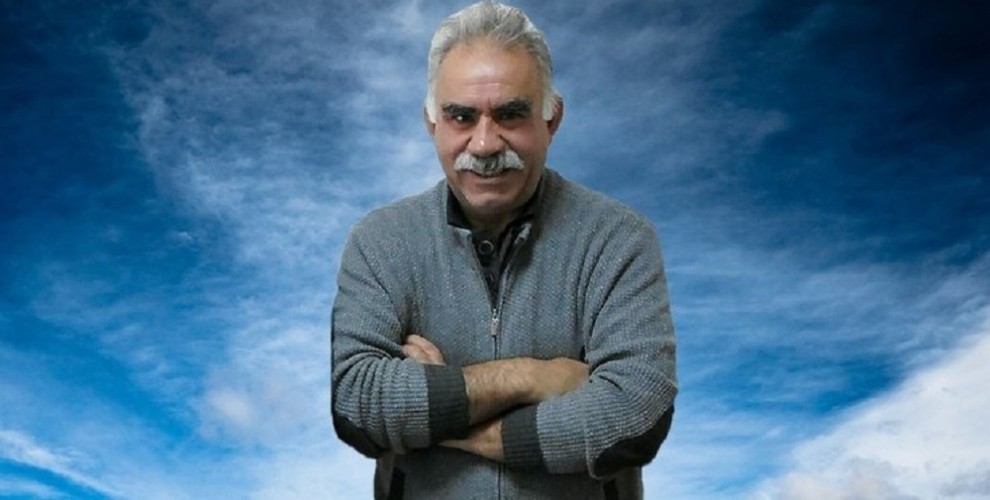EUTCC calls for the release of MPs and end to Öcalan's isolation
EU Turkey Civic Commission urged European institutions to pressure the Turkish authorities to comply with European norms and human rights conventions and standards.
EU Turkey Civic Commission urged European institutions to pressure the Turkish authorities to comply with European norms and human rights conventions and standards.

EU Turkey Civic Commission (EUTCC) issued a press release calling for actions to end the isolation of Kurdish People's Leader Abdullah Öcalan and imprisonment of HDP deputies, and urged European institutions to pressure the Turkish authorities to comply with European norms and human rights conventions and standards.
The statement recalled that an international peace delegation organized by the EUTCC and consisting of 10 members from Europe and North America, including Members of European Parliament and of the Council of Europe, academics, and journalists, was in Diyarbakir and Istanbul in February. The delegation met with representatives from the Kurdish Freedom Movement, political parties, trade unions, academics, journalists, and other civil society organizations.
The press release noted that “the delegation applied to the Turkish Minister of Justice, requesting a meeting with the leader of the Kurdish Freedom Movement, Mr. Abdullah Öcalan, who has been imprisoned and isolated in inhumane conditions on Imrali Island for eighteen years now, and who is a crucial role player in the peace process. Unfortunately, the Minister of Justice did not respond to our request.”
The delegation also attempted to visit the co-chair from the People’s Democratic Party (HDP), Mr. Selahattin Demirtas, currently imprisoned unconstitutionally in Edirne. This request was also rejected by Turkish authorities.
The delegation witnessed and gathered information about the dire human rights’ situation in the country. It attended the unlawful, politicized trial of an HDP MP from Diyarbakir; and it toured Diyarbakir and met with many people who informed them about their experiences in the year and a half since the unravelling of the peace process - the spiralling of violence and repression, the military assaults, curfews, countless infringements of civil rights, and human rights atrocities.
Members from the delegation have come to Strasbourg this week to distribute a report they have repaired about these disturbing findings.
"We were here for the debate in the Parliamentary Assembly of the Council of Europe about the situation in Turkey, and we applaud the decision to place Turkey back under monitoring. While here, we have met with the Council of Europe’s Secretary General, the Human Rights’ Commissioner, as well as members of various parliamentary delegations. In our meetings, we have stressed that there can be no democracy in Turkey without a peaceful resolution of the Kurdish question.”
The EUTCC delegation stressed that now is an opportune moment for European institutions to pressure the Turkish authorities to comply with European norms and human rights conventions and standards, adding; “The lifting of immunity of 55 of the 59 parliamentarians for the HDP, a party that represents close to 6 million voters, must be reversed. The imprisonment of many of its MP’s, including its co-chairs, Mr. Selahattin Demirtas and Ms. Figen Yuksekdag, is unlawful constitutional. They must be released.”
Pointing out that the isolation of the leader of the Kurdish Freedom Movement, Abdullah Öcalan must be ended, the statement continued; “The Committee for the Prevention and Torture has documented the inhumane and unlawful nature of his treatment in several reports. We call upon the CPT to issue a declaration of non-compliance of the Turkish authorities with its recommendations, in accordance with Article 10.2 of the European Convention for the Prevention of Torture.”
The EUTCC reminded the European authorities about the ECHR’s unanimous ruling in the March 2014 case of Öcalan vs. Turkey, in which the court ruled that Mr. Öcalan’s sentence to life imprisonment without any possibility for release violates article 3 of the European Convention of Human Rights. The EUTCC called upon the Council of Europe’s Committee of Ministers to monitor the implementation of this decision, and to include compliance with this decision among the conditions for ending the monitoring process."